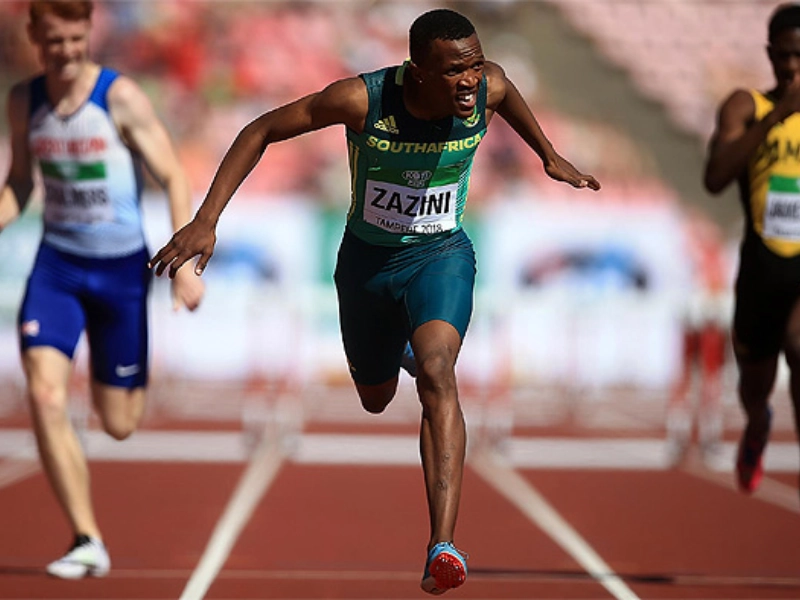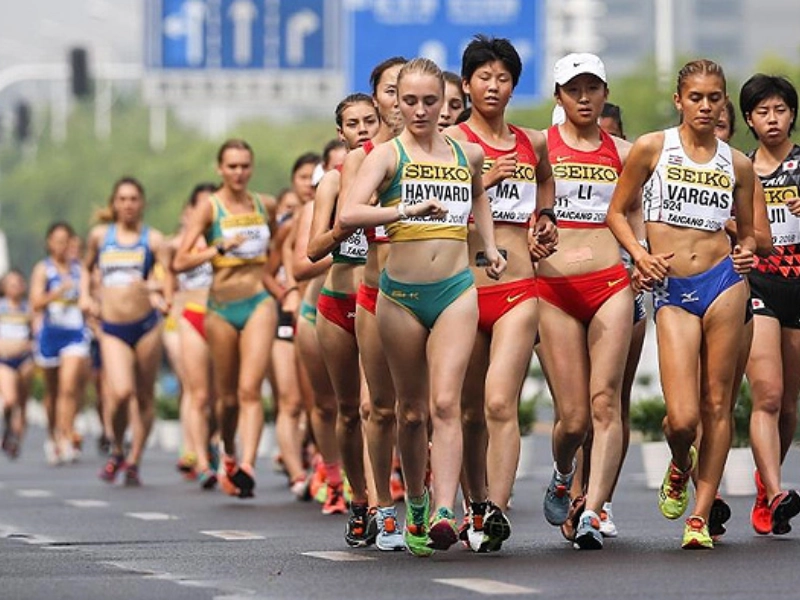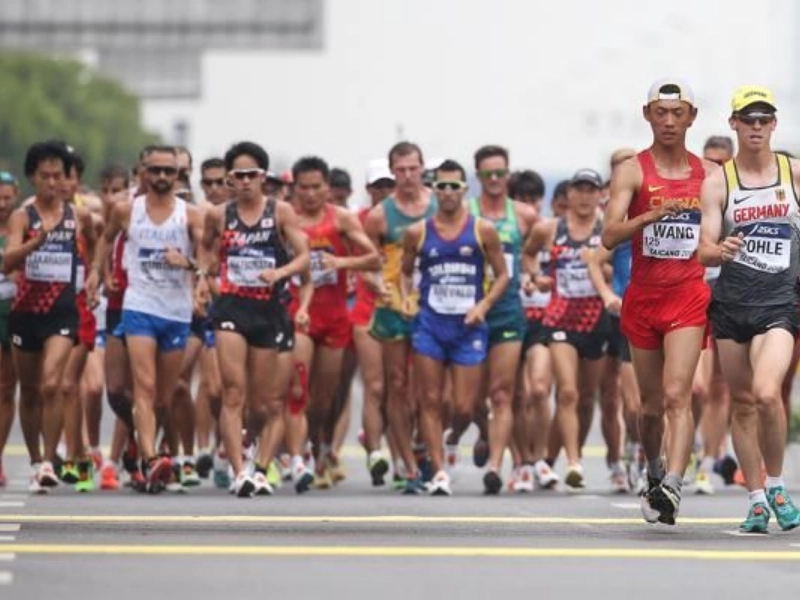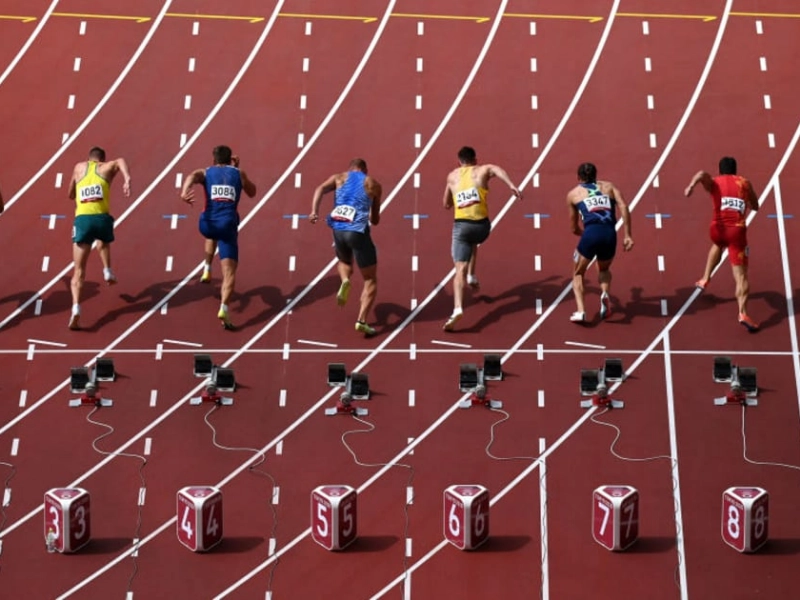Athletic performance is mostly determined by genes, which also affects all physical characteristics including physiological capacities. In sports, success depends on hard effort and training; but, an athlete's genetic composition can either offer benefits or drawbacks influencing their performance. Knowing how genes interact with athletic ability will enable coaches and athletes to maximise their training schedules and spot areas that could want development. This paper investigates the several ways that genes affects athletic ability, therefore clarifying this interesting link.

 Another vital component of sports performance affected by genes is cardiovascular fitness. Genetic elements can greatly affect the efficiency of the lungs and heart as well as oxygen transport and use abilities. Higher VO2 max, which gauges aerobic capacity and endurance, is something certain people are naturally inclined to have.
Studies have indicated that greater cardiovascular performance is linked to some genetic markers. Variations in genes linked to oxygen metabolism and transportation, for instance, can affect an athlete's endurance. This suggests that although training might increase cardiovascular fitness, those with favourable genetic profiles may reach better degrees of performance with less effort. Understanding these hereditary factors would enable sportsmen concentrate on particular training programs fit for their natural aptitudes.
Another vital component of sports performance affected by genes is cardiovascular fitness. Genetic elements can greatly affect the efficiency of the lungs and heart as well as oxygen transport and use abilities. Higher VO2 max, which gauges aerobic capacity and endurance, is something certain people are naturally inclined to have.
Studies have indicated that greater cardiovascular performance is linked to some genetic markers. Variations in genes linked to oxygen metabolism and transportation, for instance, can affect an athlete's endurance. This suggests that although training might increase cardiovascular fitness, those with favourable genetic profiles may reach better degrees of performance with less effort. Understanding these hereditary factors would enable sportsmen concentrate on particular training programs fit for their natural aptitudes.
 Muscle healing and exercise adaptation depend also heavily on genetics. Some people may recover faster from demanding workouts, which would let them train more regularly and successfully. Muscle healing mechanisms, inflammatory response, and hormone control vary genetically, which might affect an athlete's bounce back following intense activity.
For example, some genetic differences can influence the synthesis of proteins essential in muscle development and repair. Athletes with these favourable genes could see speedier recovery times and better muscle development from their training. On the other hand, people with less favourable genetic profiles could have to use more extended recovery times or other techniques to assist in muscle regeneration. Knowing these genetic variations enables athletes to maximise their training plans and recovery strategies.
Muscle healing and exercise adaptation depend also heavily on genetics. Some people may recover faster from demanding workouts, which would let them train more regularly and successfully. Muscle healing mechanisms, inflammatory response, and hormone control vary genetically, which might affect an athlete's bounce back following intense activity.
For example, some genetic differences can influence the synthesis of proteins essential in muscle development and repair. Athletes with these favourable genes could see speedier recovery times and better muscle development from their training. On the other hand, people with less favourable genetic profiles could have to use more extended recovery times or other techniques to assist in muscle regeneration. Knowing these genetic variations enables athletes to maximise their training plans and recovery strategies.
 Beyond appearance, genes can affect psychological elements influencing athletic ability. Genetic predispositions can shape qualities including drive, resilience, and motivation as well as competitive nature. Studies point to some genetic variants that might be connected to personality qualities that improve an athlete's capacity for stress and pressure management during a competition.
Athletes who have a genetic inclination for greater degrees of desire could find it simpler to keep concentrated on their goals and get through demanding training sessions. On the other hand, people who suffer with poor drive or anxiousness could find extra challenges on their path to physical development. Understanding the psychological elements of genes will enable sportsmen and coaches create mental training plans fit for their natural characteristics, therefore creating a more conducive atmosphere for performance.
Beyond appearance, genes can affect psychological elements influencing athletic ability. Genetic predispositions can shape qualities including drive, resilience, and motivation as well as competitive nature. Studies point to some genetic variants that might be connected to personality qualities that improve an athlete's capacity for stress and pressure management during a competition.
Athletes who have a genetic inclination for greater degrees of desire could find it simpler to keep concentrated on their goals and get through demanding training sessions. On the other hand, people who suffer with poor drive or anxiousness could find extra challenges on their path to physical development. Understanding the psychological elements of genes will enable sportsmen and coaches create mental training plans fit for their natural characteristics, therefore creating a more conducive atmosphere for performance.
Although athletic performance is much influenced by genes, it is important to understand that training and external surroundings also have great influence. The interplay between genes and environment is complicated; an athlete's growth is influenced by their background, availability to training facilities, coaching quality, and dietary choices. An athlete with a genetic inclination for success, for instance, might not realise their own full potential without appropriate training and assistance. On the other hand, those with fewer good genes can nevertheless reach amazing success with persistence, diligence, and appropriate direction. Given both genetic elements and environmental impacts, this emphasises the need of a complete strategy for athletic development in order to design successful training courses.
Future directions of athletic performance research seem bright as our knowledge of genetics develops. Thanks to developments in personalised medicine and genetic testing, athletes could be able to better customise their training and diet plans by knowing their genetic makeup Athletes who find particular genetic markers linked to performance characteristics can concentrate on areas likely to produce the most notable changes. Furthermore, continuous investigation on biotechnology and gene editing can present fresh chances to improve athletic performance. To guarantee fair competition, ethical questions around genetic changes in sports must thus be carefully addressed. Athletes and coaches have to keep updated on the most recent advancements as the area of genetics in sports keeps expanding so they may properly use genetic knowledge. All things considered, genes significantly shapes athletic performance, affects physical characteristics, cardiovascular fitness, muscular recovery, and psychological aspects. Although environment and training are important, knowledge of the genetic basis of athletic ability can offer insightful analysis for best performance. Athletes can better negotiate their road to success in the cutthroat world of sports by accepting the complicated interaction between genes and performance.